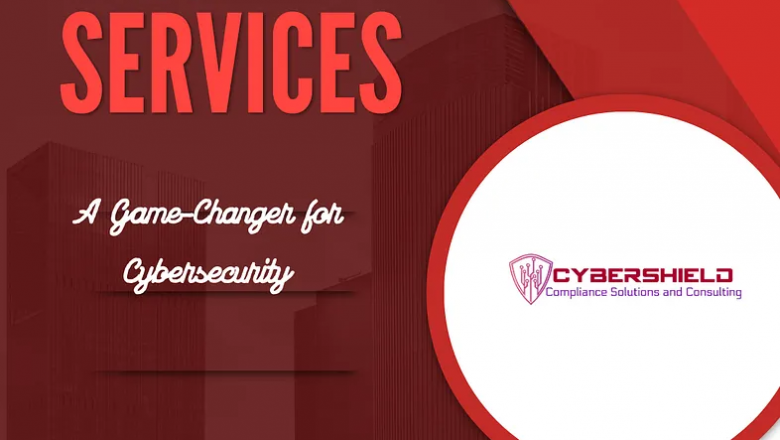views
With unprecedented cyber threats being at an all-time high, organizations need to prioritize comprehensive cybersecurity measures to protect sensitive data and maintain trust.
However, not every organization has the resources to employ a full-time Chief Information Security Officer (CISO).
Enter the Virtual Chief Information Security Officer (vCISO) — an innovative solution designed to offer top-tier cybersecurity expertise without the overhead of a full-time executive.
What is a vCISO (Virtual Chief Information Security Officer)?
A Virtual Chief Information Security Officer, or vCISO, is a cybersecurity professional or team hired on a contractual basis to provide strategic guidance, oversight, and expertise in information security.
Unlike traditional CISOs, vCISOs work remotely and offer flexible services tailored to an organization’s specific needs.
vCISO services are particularly valuable for small to medium-sized enterprises (SMEs) and startups that require top-level security leadership without incurring the costs of a full-time hire.
These professionals help organizations navigate the complexities of cybersecurity, compliance, and risk management.
Key Responsibilities of a vCISO
A vCISO undertakes a wide range of responsibilities to ensure an organization’s cybersecurity framework is robust and effective.
Key responsibilities include:
- Developing Security Strategies: Crafting and implementing a cybersecurity strategy aligned with organizational goals.
- Risk Assessment: Identifying, evaluating, and mitigating potential security threats and vulnerabilities.
- Compliance Management: Ensuring adherence to regulatory requirements, such as GDPR, HIPAA, and PCI DSS.
- Incident Response Planning: Preparing and managing response plans for potential security breaches.
- Employee Training: Conducting training sessions to educate staff about cybersecurity best practices.
- Regular Audits: Performing periodic reviews and updates of the organization’s security measures.
The Difference Between a vCISO and a Full-Time CISO
While both vCISOs and full-time CISOs play pivotal roles in strengthening an organization’s cybersecurity framework, how they operate and engage with the organization differ significantly.
A full-time Chief Information Security Officer (CISO) is an in-house executive who is permanently employed to oversee an organization’s cybersecurity strategy and operations.
Typically, full-time CISOs manage large security teams, ensure compliance with regulatory frameworks, and provide day-to-day leadership in security operations.
However, this level of involvement comes with a high price tag, as full-time CISOs demand competitive salaries, benefits, and other overhead costs.
On the other hand, a Virtual Chief Information Security Officer (vCISO) operates on a contractual or part-time basis, offering flexibility and scalability to organizations. They are especially beneficial for small to medium-sized businesses (SMBs) or startups that need high-level cybersecurity expertise but lack the budget for a full-time executive. vCISOs work remotely and focus on specific tasks or projects, such as conducting security assessments, crafting security strategies, or managing compliance for regulatory frameworks.
What are the Benefits of Hiring vCISO Services?
- Avoid the expense of a full-time salary, benefits, and overhead
- Gain access to experienced cybersecurity professionals
- Adjust services based on your organization’s evolving security requirements
- Receive objective and unbiased recommendations
- Stay ahead of industry regulations with expert guidance.
How do vCISO Services Enhance Cybersecurity Posture?
A vCISO strengthens an organization’s cybersecurity posture through strategic planning and proactive measures:
- Customized Security Frameworks
- Real-Time Threat Monitoring
- Data Protection Protocols
- Vendor Risk Management
Compliance Management with a vCISO
Compliance is a cornerstone of cybersecurity. A vCISO ensures your organization adheres to industry regulations, avoiding fines and reputational damage.
Their role includes:
- Conducting compliance audits.
- Streamlining processes to meet legal and regulatory standards.
- Providing detailed documentation for audits and assessments.
With expertise in outsourcing cyber compliance, vCISOs help organizations navigate complex regulatory landscapes with ease.
When Does Your Organization Need a vCISO?
- Your organization lacks in-house cybersecurity leadership.
- Compliance requirements are overwhelming.
- You’ve experienced a security breach.
- Cybersecurity concerns are hindering business growth.
- You’re looking to scale security efforts cost-effectively.
Conclusively, vCISO services represent a game-changing solution for organizations striving to bolster their cybersecurity defenses without the commitment of a full-time executive.
CyberShield CSC offers tailored vCISO services designed to protect your organization from emerging threats while ensuring compliance and best practices.
Contact CyberShield CSC today to learn more!
Frequently Asked Questions
- What industries benefit most from vCISO services?
Industries handling sensitive data, such as healthcare, finance, and technology, gain the most from vCISO expertise.
- Can a vCISO work alongside an internal IT team?
Yes, a vCISO often collaborates with in-house teams to enhance cybersecurity measures.
- Is a vCISO suitable for small businesses?
Absolutely. Small businesses benefit from the cost-effective and scalable nature of vCISO services.






















Comments
0 comment